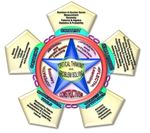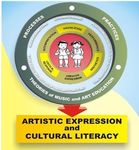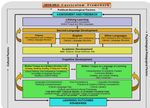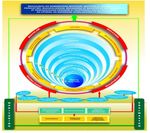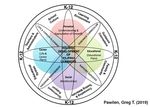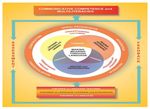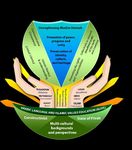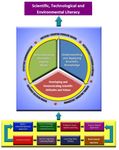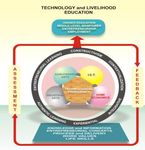Briefers for BCD Programs, Activities and Projects - DepEd
←
→
Page content transcription
If your browser does not render page correctly, please read the page content below
Table of Contents
Introduction . . . . . . . . 3
BCD Mandate . . . . . . . . 3
CSDD Mandate . . . . . . . 3
SCPD Mandate . . . . . . . 3
Focal Persons . . . . . . . 4
DO 21, s. 2019 Table of Contents . . . . . 6
Format and Content Organization of the Briefers . . . 11
Learning Area Briefers . . . . . . 12
Filipino . . . . . . . 12
English . . . . . . . 14
Science . . . . . . . 16
Mathematics . . . . . . . 18
Araling Panlipunan . . . . . . 20
Music and Arts . . . . . . 22
Physical Education . . . . . . 24
Health . . . . . . . 25
Edukasyon sa Pagpapakatao . . . . . 26
EPP/TLE . . . . . . . 28
Mother Tongue . . . . . . 29
Kindergarten Education Briefer . . . . . 31
Special Curricular Programs Briefers . . . . 33
Special Program in Sports (SPS) . . . . 33
Special Program in Arts . . . . . 35
Special Program in Foreign Language (SPFL) . . 37
Special Program in Journalism (SPJ) . . . . 39
Special Science Program (SSP)/STEM . . . 41
Special Program in Technical and Vocational Education (SPTVE) 44
Special Education (SPED) . . . . . . 46
Madrasah . . . . . . . . 48
Comprehensive Guidance and Counseling Program (CGCP) . 50
Philippine Schools Overseas (PSO) . . . . . 52
Comprehensive Sexuality Education (CSE) . . . . 55
Preventive Drug Education Program (PDEP) . . . 59
National Science and Technology Fair (NSTF) . . . 60
National Schools Press Conference (NSPC) . . . 62
Homeroom Guidance . . . . . . 63
Joint Delivery Voucher Program (JDVP) . . . . 65
Financial Education Program (FinEd) . . . . 66
Page |2Introduction
The Bureau of Curriculum Development, being attached to the Office of the Undersecretary for
Curriculum and Instruction, is mandated to (a) develop and manage the national education policy
framework on curriculum development and management for the Department, (b) Develop national
curriculum standards for basic education, (c) Design and develop special curriculum programs for all
types of learners and (d) Formulate policies and guidelines relevant to the management,
contextualization and localization of the curriculum. Its major outputs include the national
curriculum standards and curriculum policies that are responsive to the United Nations’ Sustainable
Development Goal 4 (Ensure inclusive and equitable quality education and equal learning
opportunities for all) and aligned with the Philippine Development Plan (2016-2022). All these relate
to the expectations of all internal and external stakeholders and interested parties.
Hence, this BCD document presents BCD’s programs, their descriptions and legal references
including the definitions of terms to clearly articulate its mandate.
BCD’s Mandate
o Develop and manage the national education policy framework on curriculum development
and management for the Department
o Develop national curriculum standards for basic education
o Design and develop special curriculum programs for all types of learners
o Formulate policies and guidelines relevant to the management, contextualization and
localization of the curriculum.
CSDD’s Mandate
o Lead in formulating the national curriculum standards for basic education appropriate for all
types of learners
o Conduct research on the basic education curriculum for continuous improvement in
education as the basis for policy development
o Formulate the standards and guidelines on curriculum localization including time allotment
per learning area
o Provide technical assistance to the field
SCPD’s Mandate
o Design and develop special curricular programs that address national and global thrusts
appropriate for all types of learners (ie, special science and math, arts, vocational-technical
education, SPED, IPs, Madrasah, etc.)
o Formulate policies and standards for these programs appropriate for all types of learners
o Develop and periodically update frameworks for the effective adaptation of curriculum
programs for all types of learners
Page |3PAPs and the Focal Persons
K to 10 Core Curriculum
0905-523-
Kinder CSDD Karen G. Lay karen.lay@deped.gov.ph
1818
Anna Maria Patricia V. 0966-551-
MTB-MLE CSDD ampatricia.santos@deped.gov.ph
Santos 2974
0947-890-
Filipino CSDD Roseta Comiso-Gallo roseta.comiso@deped.gov.ph
1978
0917-983-
English CSDD Ricardo G. Ador Dionisio ricardo1adordionisio@gmail.com
5854
0949-762-
CSDD rosalie.masilang@deped.gov.ph
Araling Panlipunan Rosalie Masilang 7789
Mark Anthony V. 0932-884-
Edukasyon sa Pagpapakatao CSDD mark.bercando@deped.gov.ph
Bercando 0534
0917-310-
MAPEH CSDD Jerry Crausus jerry.crausus@deped.gov.ph
3395
0906-578-
Mathematics CSDD Bernadeth C. Daran bernadeth.daran@deped.gov.ph
7358
0919-315-
Science CSDD Joseph Gutierrez joseph.gutierrez@deped.gov.ph
7082
0917-983-
Aileen Supnad aileen.supnad@deped.gov.ph
5854
TLE/TVL CSDD Christopher S. Valiente christopher.valiente@deped.gov.ph
0927-602-
Maricel S. Cariño che_carino24@yahoo.com
7202
K to 10 Special Curricula
0906-578-
STEM CSDD Bernadeth C. Daran bernadeth.daran@deped.gov.ph
7358
0906-578-
Special Science Program (SSP) CSDD Bernadeth C. Daran bernadeth.daran@deped.gov.ph
7358
Special Program in Journalism 0917-983-
CSDD Ricardo G. Ador Dionisio ricardo1adordionisio@gmail.com
(SPJ) 5854
Special Program in Foreign 0995-877-
SCPD Riza C. Gusano riza.gusano@deped.gov.ph
Language (SPFL) 3786
0998-860-
SPFL - German CSDD Glenne Delos Trinos glenne.delostrinos@deped.gov.ph
5677
0906-208-
SPFL - French CSDD Wenda Fajardo wenda.fajardo@deped.gov.ph
0009
0916-418-
SPFL - Mandarin CSDD Ayette C. Ferriols ayette.ferriols@deped.gov.ph
1723
Anna Maria Patricia V. 0966-551-
SPFL-Korean CSDD ampatricia.santos@deped.gov.ph
Santos 2974
0906-028-
SPFL-Spanish SCPD Tina Amor Buhat tina.buhat@deped.gov.ph
4012
0949-448-
3287
SPFL-Nihongo SCPD Ana Marie Calapit ana.calapit@deped.gov.ph
0923-542-
2837
Special Program for the Arts 0928-976-
CSDD Christine Graza-Magboo christine.magboo@deped.gov.ph
(SPA) 9814
0926-037-
Special Program in Sports (SPS) SCPD Rosa Ligaya Domingo rosaligaya@yahoo.com
0004
0920-961-
SPED SCPD Sheena Jade Manuel sheena.manuel@deped.gov.ph
3951
Special Program in Technical 0908-896-
SCPD Maria Cecilia O. Nayve ma.nayve@deped.gov.ph
Vocational Education (SPTVE) 7687
Senior High School PAPs
Page |40908-896-
Maria Cecilia O. Nayve 7687 ma.nayve@deped.gov.ph
Entrepreneurship SCPD
Ma. Melissa Albino 0919-328- ma.albino002@deped.gov.ph
3457
Joint Delivery Voucher Program 0908-427-
CSDD Aileen M. Supnad aileen.supnad@deped.gov.ph
(JDVP) 6590
Senior High School National Task 0926-026-
SCPD Enrique Palacio enrique.palacio@deped.gov.ph
Force 6835
0926-026-
Tracer Study SCPD Enrique Palacio enrique.palacio@deped.gov.ph
6835
Mark Anthony V. 0932-884-
Work Immersion CSDD mark.bercando@deped.gov.ph
Bercando 0534
Other PAPs
0932-884-
0534
Mark Anthony Bercando mark.bercando@deped.gov.ph
0947-890-
Curriculum Review CSDD Roseta Comiso-Gallo roseta.comiso@deped.gov.ph
1978
Rowel Padernal rowel.padernal@deped.gov.ph
0919-616-
5866
0917-310-
Preventive Drug Education (PDE) CSDD Jerry Crausus jerry.crausus@deped.gov.ph
3395
0919-999-
Comprehensive Sexuality Rosalie B. Masilang 6703 rosalie.masilang@deped.gov.ph
CSDD
Education (CSE) Michael Cabrera 0998-546- michael.cabrera001@deped.gov.ph
0279
0916-418-
Language Policy CSDD Ayette C. Ferriols ayette.ferriols@deped.gov.ph
1723
0908-427-
Financial Literacy CSDD Aileen M. Supnad aileen.supnad@deped.gov.ph
6590
0917-555-
Homeroom Guidance Program CSDD Jona Kristen Valdez jona.valdez@deped.gov.ph
7510
Comprehensive Guidance Career 0906-028-
SCPD Tina Amor Buhat tina.buhat@deped.gov.ph
Program 4012
0917-798-
Madrasah/ALIVE SCPD Mildred Zamar mildred.zamar@deped.gov.ph
8712
0919-616-
Contextualization CSDD Rowel Padernal rowel.padernal@deped.gov.ph
5866
Indigenous Peoples Education 0917-798-
SCPD Mildred Zamar mildred.zamar@deped.gov.ph
(IPED) 8712
Philippine Schools Overseas 0995-877-
SCPD Riza C. Gusano riza.gusano@deped.gov.ph
(PSOs) 3786
Rural Farm School Curriculum 0998-998-
SCPD Edna M. Bulan edna.bulan@deped.gov.ph
and M&E 0982
0949-448-
Special Interest Programs (SIP) SCPD Ana Marie Calapit ana.calapit@deped.gov.ph
3287
0919-693-
PASBE SCPD Maritel T. Bacsa mar6267@yahoo.com
7476
0919-693-
SCP Accreditation SCPD Maritel T. Bacsa mar6267@yahoo.com
7476
0906-578-
Bernadeth C. Daran
7358 bernadeth.daran@deped.gov.ph
Quality Management System CSDD Anna Maria Patricia V.
0966-551- ampatricia.santos@deped.gov.ph
Santos
2974
National Schools Press Conference Mark Anthony V. 0932-884-
CSDD mark.bercando@deped.gov.ph
(NSPC) Bercando 0534
National Science and Technology 0928-673-
CSDD Anna Liza Chan annaliza.chan@deped.gov.ph
Fair (NSTF) 0787
Page |5DepEd Order 21, s. 2019 and Its Table of Contents
To easily locate the BCD PAPs in DO 21, s. 2019 (Policy Guidelines on the K to 12 Basic
Education Program), the Table of Contents was constructed as shown below.
DO 21, s .2019 (Policy Guidelines on the K to 12 Basic Education Program) Page
I. Background and Rationale 1
II. Policy Objectives
III. Scope
IV. Definition of Terms
V. Policy Statement 4
The Learner 5
Inclusive Education (Annex 5) 5
Enhanced BEP: K to 12 6
The 21st Century Skills 6
Pathways and Equivalencies 7
VI. The K to 12 Conceptual Framework on Being and Becoming a Whole 8
Person
Curriculum Exits 9
Features of the K to 12 Curriculum 9
K to 12 Curriculum Support System 10
Teachers (see also DO 42, s. 2017 PPST, DO 35, s. 2016 LAC, RA 10912) 10
Materials, Facilities, Equipment 11
ICT Environment 11
Assessment (and Awards System) (DO 8, s 2015, DO 36, s. 2016, DO 55, s 12
2016, DO 29, s 2017)
School Leadership and Management 12
Schools Divisions Technical Assistance 12
Community-Industry Relevance and Partnerships 13
VII. Monitoring and Evaluation 13
VIII. References 15
ELEMENTARY EDUCATION (Annex 1) 17-42
Key Stage 1: K to 3 (Learning Areas and Standards) 20
Kindergarten Education 21-23
Curriculum 21
Kindergarten Curriculum Domains 21
Instruction 22
Time Allotment 23
Grades 1 to 3 23-31
Curriculum by Learning Areas 24
Mother Tongue 24
Filipino 25
English 25
Science 26
Mathematics 27
AP 27
Music 28
Arts 28
PE 28
Health 29
Page |6Edukasyon sa Pagpapakatao 29
Time Allotment 30
Assessment 31
Key Stage 2: Grades 4-6 (Learning Areas and Standards) 31-38
Curriculum by Learning Areas 32
Filipino 32
English 32
Science 32
Math 33
AP 34
EPP 35
Music 35
Arts 35
Physical Education 36
Health 36
Edukasyon sa Pagpapakatao 36
Time Allotment 37
Medium of Teaching and Learning 37
Assessment 38
Features of Elementary Education
Homeroom Guidance Program for Elementary Pupils 38
Program for the Gifted 39
Special Curricular Programs 39
Special Science Elementary School (SSES) 39
Special Program in the Arts (SPA) 39
Special Program in Sports (SPS) 39
Special Program in Journalism (SPJ)0 40
Co-curricular Activities: Supreme Student Government 40
Special Education 40-41
SECONDARY EDUCATION (Annex 2) 43-95
Key Stage 3: Junior High School (Learning Areas and Standards) 45-56
Curriculum per Learning Area 45
English 46
Filipino 46
Mathematics 47
Science 48
Araling Panlipunan 49
Edukasyon sa Pagpapakatao 50
Music 52
Physical Education 52
Health 53
Time Allotment 55
Medium of Teaching and Learning 56
Assessment 56
Key Stage 4: Senior High School (Learning Areas and Standards) 56
SHS Core Curriculum Subjects 58
Language 58
Humanities 58
Communication 59
Page |7Mathematics 59
Science 59
Social Science 60
Philosophy 60
Physical Education and Health 60
Time Allotment of the Core Curriculum Subjects 61
SHS Applied Curriculum Subjects 62
Time Allotment of the Applied Curriculum Subjects 63
Medium of Teaching and Learning 63
SHS Specialized Subjects 64
Academic Track
Accountancy, Business and Management (ABM) 64
Science, Technology, Engineering and Mathematics (STEM) 65
Humanities and Social Sciences 67
General Academic 69
Sports Track 69
Arts and Design Track 70
Technical-Vocational-Livelihood (TVL) Track 72
Agri-Fishery Strand, Time Allotment and Prerequisites 73
Curriculum Map 75
Home Economics Strand, Time Allotment and Prerequisites 76
Curriculum Map 77
Industrial Arts Strand, Time Allotment and Prerequisites 78
Curriculum Map 80
ICT Strand, Time Allotment and Prerequisites 81
Curriculum Map 82
Work Immersion, Research, Career Advocacy, Culminating Activity 83
TVL Work Immersion Delivery Models 83
ABM – Business Enterprise Simulation 86
HUMSS-Culminating Activity 86
STEM-Research Capstone Project 86
Arts and Design – Performing Arts Production/Exhibit for Arts 86
Production
Sports – Apprenticeship (off-campus) 86
SHS Curriculum Flexibilities 86
Assessment in Senior High School 87
Features of Secondary Education
Special Curricular Programs 88
Special Program in Arts (SPA) 88
Special Program in Foreign Language (SPFL) 88
Special Program in Journalism (SPJ) 88
Special Program in Sports (SPS) 88
Science, Technology and Engineering Program (STEP) 88
Special Program in Technical-Vocational Education (SPTVE) 88
Homeroom Guidance Program 89
Citizenship Training Program 89
Secondary Schools for Specific Purposes 90
Page |8Regional Science High Schools (RSHS) 90
Sports Academies 90
Schools for Arts and Design 90
Rural Farm Schools 90
Co-curricular Activities in Secondary Education 91
National Schools Press Conference 91
National Festival of Talents 91
National Science and Technology Fair 92
Palarong Pambansa 92
Special Education 92
References 94
Annex 3
FLEXIBLE LEARNING OPTIONS – ALTERNATIVE DELIVERY MODES 96-99
Home School 96
IMPACT 97
MISOSA 98
Night High School 99
Open High School 99
FLEXIBLE LEARNING OPTIONS - ALTERNATIVE LEARNING SYSTEM 100-109
Curriculum Learning Strands 101
Alignment: ALS vs Grade Levels 108
References 109
Annex 4 GUIDELINES ON MOTHER TONGUE-BASED MULTILINGUAL 110-140
EDUCATION (MTB-MLE) PROGRAM IMPLEMENTATION
Rationale 110
Scope of the Policy 111
Definition of Terms 111
Policy Statement 113
Essential Components of MTB-MLE Program 113
MTB-MLE Curriculum 113
Mother Tongue Curriculum Contextualization 114
Learning Resource and Development 115
Instruction: Language Transition Program 126
Instruction: Class Sectioning 129
Assessment 131
Program Management 131
Monitoring and Evaluation 132
References 133
Appendix 1: Rapid Appraisal of Language for MTBMLE Implementation 135
Appendix 2: Four Minima for MTBMLE Implementation 137
Annex 5 INCLUSIVE EDUCATION POLICY FRAMEWORK FOR BASIC 141-153
EDUCATION
Rationale 141
Legal Bases 141
International Legal and Standard-Setting Instruments
1989 CRC, 1994 Salamanca Statement, UNCR PWD, 2007 UNDR IPs 141
Education 2030 SDGs (eg SDG 4 Quality Education)
Philippine Legal Mandates for Inclusive Education 142
1987 Philippine Constitution
Page |9RA 10533 K to 12 Law
RA 9710 Magna Carta for Women
RA 10157 Kindergarten Education Act
RA 9155 DepED
RA 8371 IPRA
RA 9344 Juvenile Justice and Welfare Act
RA 9442 Magna Carta for Disabled Persons
RA 10665 Open High School System Act
RA 10361 Batas Kasambahay
RA 7610 Special Protection Against Abuse, Exploitation and
Discrimination Act
Scope 144
Definition of Terms 144
Policy Statement 145
Guiding Principles 145
Key Dimensions
The Learners 145
The K to 12 Curriculum 146
Development of Learning Resources 147
Learning Delivery 147
Educational Assessment 148
Learning Environment 148
Teacher Professional Development 149
School Leadership and Management 150
Partnerships for Inclusive Education 150
Governance Support 151
Monitoring and Evaluation 151
References 152
P a g e | 10BRIEFERS: FORMAT AND CONTENT ORGANIZATION
The format and content organization of each BCD PAPs Briefer were based on an analysis of the
CSDD/SCPD Flyers. This Briefer in MS Word may serve as reference in preparing the BCD PAPs
Flyers and Powerpoint presentations.
There are three (3) groups of BCD PAPs with their respective format and content organizations.
For Learning Area/s
Eg. Edukasyon sa Pagpapakatao - Grades 1-10
• Learning Area:
• DepEd Order
• Curriculum Guide
• Learning Area Framework
• Learning Area Standards
• Key Stage Learning Area Standards
• Grade Level Learning Area Standards
• Time Allotment (in minutes per week)
• Reference/s
• Revised as of
For Kindergarten, Special Curricular Program, Senior HS Track, PSO
Eg. SPS SHS Academic-STEM
SPJ SHS TVL - AFA
SPFL, etc SHS
• Program
• DepEd Order
• Framework, if any
• Vision
• Mission
• Objectives
• Reference/s
• Revised as of
For other PAPs (with DepEd Order/Memorandum
Eg. CSE, PDEP, JDVP, NSTF, NSTF, etc
• Program
• DepEd Order
• Framework, if any
• Vision
• Mission
• Objectives
• Relationship to Curriculum (eg. Integration)
• Reference/s
• Revised as of
P a g e | 11Learning Area Briefers
Learning Area: Filipino
DepEd Order DO 21, s. 2019, p 25; p 32; p 46
Curriculum Guide http://www.deped.gov.ph/wp-content/uploads/2019/01/Filipino-CG.pdf
Learning Area Framework
Learning Area Standards Baitang 1-6
Nagagamit ang wikang Filipino upang madaling maunawaan at
maipaliwanag ang mga kaalaman sa araling pangnilalaman, magamit
ang angkop at wastong salita sa pagpapahayag ng sariling kaisipan,
damdamin o karanasan nang may lubos na paggalang sa kultura ng
nagbibigay at tumatanggap ng mensahe.
Baitang 7-10
Naipamamalas ng mag-aaral ang kakayahang komunikatibo,
mapanuring pag-iisip, at pag-unawa at pagpapahalagang pampanitikan
gamit ang teknolohiya at iba’t ibang uri ng teksto at mga akdang
pampanitikang rehiyunal, pambansa, saling-akdang Asyano at
pandaigdig tungo sa pagtatamo ng kultural na literasi.
Key Stage Learning Area Key Stage 1
Standards Sa dulo ng Baitang 3, nakakaya ng mga mag-aaral na ipakita ang
kasanayan sa pag-unawa at pag-iisip sa mga narinig at nabasang teksto
at ipahayag nang mabisa ang mga ibig sabihin at nadarama.
Key Stage 2
Sa dulo ng Baitang 6, naipapakita ng mga mag-aaral ang sigla sa
pagtuklas at pagdama sa pabigkas at pasulat na mga teksto at ipahayag
nang mabisa ang mga ibig sabihin at nadarama.
Key Stage 3
Sa dulo ng Baitang 10, naipamamalas ng mag-aaral ang kakayahang
komunikatibo, replektibo/ mapanuring pag-iisip at pagpapahalagang
pampanitikan sa tulong ng mga akdang rehiyonal, pambansa at
salintekstong Asyano at pandaigdig upang matamo ang kultural na
literasi.
Grade Level Learning DO 21, s 2019
Area Standards Key Stage 1, p 25; Key Stage 2, p 32; Key Stage 3, p 46
P a g e | 12Time Allotment (in Grade Grades Grades Grades
minutes per week) 1 2-3 4-6 7-10
1st sem 2nd sem
150 150 250 250 240
DO 21, s. 2019 p37 p55
p30
Reference/s DO 21, s 2019 (Policy Guidelines on the K to 12 Basic Education
Program)
http://www.deped.gov.ph/wp-
content/uploads/2019/08/DO_s2019_021.pdf
K to 10 Curriculum Guides
https://www.deped.gov.ph/k-to-12/about/k-to-12-basic-education-
curriculum/grade-1-to-10-subjects/
Revised as of May 2020
P a g e | 13Learning Area: English
DepEd Order DO 21, s. 2019, p 25; p 32; p 46
Curriculum Guide http://www.deped.gov.ph/wp-content/uploads/2019/01/English-CG.pdf
Learning Area Framework
Learning Area Standards Grades 1-6
The learner demonstrates mastery of basic skills in English language
arts; communicates appropriately, fluently and accurately orally and
writes for a variety of purposes in different social and academic context
at his/her level while carrying out real life tasks necessary to cope with
the demands of a functionally literate and competent local, national, and
global citizen.
Grades 7-10
The learner demonstrates communicative competence through his/ her
understanding of literature and other texts types for a deeper
appreciation of Philippine Culture and those of other countries.
Key Stage Learning Area Key Stage 1
Standards Students should be able to demonstrate eagerness to explore and
experience oral and written texts and to communicate meanings and
feelings effectively.
Key Stage 2
Student should be able to construct meanings and communicate them
using creative, appropriate and grammatically correct oral and written
language.
Key Stage 3
Students should be able to interpret, evaluate and represent information
within and between learning area texts and discourses.
Grade Level Learning DO 21, s 2019
Area Standards Key Stage 1, p 25; Key Stage 2, p 32; Key Stage 3, p 46
Time Allotment (in Grade Grades Grades Grades
minutes per week) 1 2-3 4-6 7-10
1st sem 2nd sem
150 250 250 240
DO 21, s. 2019 p37 p55
P a g e | 14p30
Reference/s DO 21, s 2019 (Policy Guidelines on the K to 12 Basic Education
Program)
http://www.deped.gov.ph/wp-
content/uploads/2019/08/DO_s2019_021.pdf
K to 10 Curriculum Guides
https://www.deped.gov.ph/k-to-12/about/k-to-12-basic-education-
curriculum/grade-1-to-10-subjects/
Revised as of May 2020
P a g e | 15Learning Area: Science
DepEd Order DO 21, s. 2019 p 26; p 32; p 48
Curriculum Guide http://www.deped.gov.ph/wp-content/uploads/2019/01/Science-
CG_with-tagged-sci-equipment_revised.pdf
Learning Area Framework
Learning Area Standards K to 12
The learners demonstrate understanding of basic science concepts and
application of science-inquiry skills. They exhibit scientific attitudes and
values to solve problems critically, innovate beneficial products, protect
the environment and conserve resources, enhance the integrity and
wellness of people, make informed decisions, and engage in discussions
of relevant issues that involve science, technology, and environment.
Key Stage Learning Area At the end of Grade 3, the learners should have acquired healthful habits
Standards and have developed curiosity about self and their environment using basic
process skills of observing, communicating, comparing, classifying,
measuring, inferring and predicting. This curiosity will help learners
value science as an important tool in helping them continue to explore
their natural and physical environment. This should also include
developing scientific knowledge or concepts
At the end of Grade 6, the learners should have developed the essential
skills of scientific inquiry – designing simple investigations, using
appropriate procedure, materials and tools to gather evidence, observing
patterns, determining relationships, drawing conclusions based on
evidence, and communicating ideas in varied ways to make meaning of
the observations and/or changes that occur in the environment. The
content and skills learned will be applied to maintain good health, ensure
the protection and improvement of the environment, and practice safety
measures.
At the end of Grade 10, the learners should have developed scientific,
technological, and environmental literacy and can make that would lead
to rational choices on issues confronting them. Having been exposed to
scientific investigations related to real life, they should recognize that the
central feature of an investigation is that if one variable is changed (while
P a g e | 16controlling all others), the effect of the change on another variable can be
measured. The context of the investigation can be problems at the local or
national level to allow them to communicate with learners in other parts
of the Philippines or even from other countries using appropriate
technology. The learners should demonstrate an understanding of science
concepts and apply science inquiry skills in addressing real-world
problems through scientific investigations.
Grade Level Learning DO 21, s 2019
Area Standards Key Stage 1, p 26; Key Stage 2, p 32; Key Stage 3, p 48
Time Allotment(in Grades 4-6 Grades
minutes per week) 7-10
250 240
DO 21, s. 2019 p55
p37
Reference/s DO 21, s 2019 (Policy Guidelines on the K to 12 Basic Education
Program)
http://www.deped.gov.ph/wp-
content/uploads/2019/08/DO_s2019_021.pdf
K to 10 Curriculum Guides
https://www.deped.gov.ph/k-to-12/about/k-to-12-basic-education-
curriculum/grade-1-to-10-subjects/
Revised as of May 2020
P a g e | 17Learning Area: Mathematics
DepEd Order DO 21, s 2019, p 27; p 33; p 47
Curriculum Guide http://www.deped.gov.ph/wp-content/uploads/2019/01/Math-CG_with-
tagged-math-equipment.pdf
Learning Area Framework
Learning Area Standards K to 12
The learner demonstrates understanding and appreciation of key concepts
and principles of mathematics as applied - using appropriate technology -
in problem solving, critical thinking, communicating, reasoning, making
connections, representations, and decisions in real life.
Key Stage Learning Area At the end of Grade 3, the learner demonstrates understanding and
Standards appreciation of key concepts and skills involving numbers and number
sense (whole numbers up to 10,000 and the four fundamental operations
including money, ordinal numbers up to 100th, basic concepts of
fractions); measurement (time, length, mass, capacity, area of square and
rectangle); geometry (2-dimensional and 3-dimensional objects, lines,
symmetry, and tessellation); patterns and algebra (continuous and
repeating patterns and number sentences); statistics and probability (data
collection and representation in tables, pictographs and bar graphs and
outcomes)as applied using appropriate technology - in critical thinking,
problem solving, reasoning, communicating, making connections,
representations, and decisions in real life.
At the end of Grade 6, the learner demonstrates understanding and
appreciation of key concepts and skills involving numbers and number
sense (whole numbers, number theory, fractions, decimals, ratio and
proportion, percent, and integers);measurement (time, speed, perimeter,
circumference and area of plane figures, volume and surface area of
solid/space figures, temperature and meter reading); geometry (parallel
and perpendicular lines, angles, triangles, quadrilaterals, polygons,
circles, and solid figures); patterns and algebra (continuous and
repeating patterns, number sentences, sequences, and simple equations);
statistics and probability (bar graphs, line graphs and pie graphs, simple
experiment, and experimental probability) as applied -using appropriate
technology - in critical thinking, problem solving, reasoning,
P a g e | 18communicating, making connections, representations, and decisions in
real life.
At the end of grade 10, the learner demonstrates understanding and
appreciation of key concepts and skills involving numbers and number
sense (sets and real numbers); measurement (conversion of units);
patterns and algebra (linear equations and inequalities in one and two
variables, linear functions, systems of linear equations, and inequalities
in two variables, exponents and radicals, quadratic equations,
inequalities, functions, polynomials, and polynomial equations and
functions); geometry (polygons, axiomatic structure of geometry,
triangle congruence, inequality and similarity, and basic
trigonometry);statistics and probability (measures of central tendency,
variability and position; combinatorics and probability) as applied -
using appropriate technology - in critical thinking, problem solving,
communicating, reasoning, making connections, representations, and
decisions in real life.
Grade Level Learning DO 21, s 2019
Area Standards Key Stage 1, p 27; Key Stage 2, p 33; Key Stage 3, p 47
Time Allotment (in Grade Grades Grades Grades
minutes per week) 1 2-3 4-6 7-10
1st sem 2nd sem 250 240
250 250 250 250 240
DO 21, s. 2019 p37 p55
p30
Reference/s DO 21, s 2019 (Policy Guidelines on the K to 12 Basic Education
Program)
http://www.deped.gov.ph/wp-
content/uploads/2019/08/DO_s2019_021.pdf
K to 10 Curriculum Guides
https://www.deped.gov.ph/k-to-12/about/k-to-12-basic-education-
curriculum/grade-1-to-10-subjects/
Revised as of May 2020
P a g e | 19Learning Area: Araling Panlipunan
DepEd Order DO 21, s 2019, p 27; p 34; p 49
Curriculum Guide http://www.deped.gov.ph/wp-content/uploads/2019/01/AP-CG.pdf
Learning Area Framework
Core Learning Area Grades 1-10
Standards Naipamamalas ang pag-unawa sa mga konsepto at isyung
pangkasaysayan, pangheograpiya, pang-ekonomiya, pangkultura,
pampamahalaan, pansibiko, at panlipunan gamit ang mga kasanayang
nalinang sa pag-aaral ng iba’t ibang disiplina at larangan ng araling
panlipunan kabilang ang pananaliksik, pagsisiyasat, mapanuring pag-
iisip, matalinong pagpapasya, pagkamalikhain, pakikipagkapwa, likas-
kayang paggamit ng pinagkukunang-yaman, pakikipagtalastasan at
pagpapalawak ng pandaigdigang pananaw upang maging isang
mapanuri, mapagnilay, mapanagutan, produktibo, makakalikasan,
makabansa at makatao na papanday sa kinabukasan ng mamamayan ng
bansa at daigdig.
Key Stage Learning Area Naipamamalas ang panimulang pag-unawa at pagpapahalaga sa
Standards sarili, pamilya, paaralan, at komunidad, at sa mga batayang konsepto
ng pagpapatuloy at pagbabago, distansya at direksyon gamit ang mga
kasanayan tungo sa malalim ng pag-unawa tungkol sa sarili at
kapaligirang pisikal at sosyo-kultural , bilang kasapi ng sariling
komunidad at ng mas malawak na lipunan
Naipamamalas ang mga kakayahan bilang batang produktibo,
mapanagutan at makabansang mamamayang Pilipino gamit ang
kasanayan sa pagsasaliksik, pagsisiyasat, mapanuring pag-iisip,
matalinong pagpapasya, pagkamalikhain, pakikipagkapwa, likas-kayang
paggamit ng pinagkukunang-yaman at pakikipagtalastasan at pag-unawa
sa mga batayang konsepto ng heograpiya, kasaysayan, ekonomiya,
pamamahala, sibika at kultura tungo sa pagpapanday ng maunlad na
kinabukasan para sa bansa
Naipamamalas ang mga kakayahan bilang kabataang mamamayang
Pilipino na mapanuri, mapagnilay, malikhain, may matalinong
P a g e | 20pagpapasya at aktibong pakikilahok, makakalikasan,
mapanagutan,produktibo, makatao at makabansa, na may pandaigdigang
pananaw gamit ang mga kasanayan sa pagsisiyasat, pagsusuri ng datos at
iba’t ibang sanggunian, pagsasaliksik, mabisang komunikasyon at pag-
unawa sa mga batayang konsepto ng heograpiya, kasaysayan, ekonomiya,
politika at kultura tungo sa pagpapanday ng maunlad na kinabukasan para
sa bansa.
Grade Level Learning DO 21, s 2019
Area Standards Key Stage 1, p 27; Key Stage 2, p 34; Key Stage 3, p 49
Time Allotment (in Grade Grades Grades Grades
minutes per week) 1 2-3 4-6 7-10
1st sem 2nd sem
200 200 200 200 180
DO 21, s. 2019 p37 p55
p30
Reference/s DO 21, s 2019 (Policy Guidelines on the K to 12 Basic Education
Program)
http://www.deped.gov.ph/wp-
content/uploads/2019/08/DO_s2019_021.pdf
K to 10 Curriculum Guides
https://www.deped.gov.ph/k-to-12/about/k-to-12-basic-education-
curriculum/grade-1-to-10-subjects/
Revised as of May 2020
P a g e | 21Learning Area: Music and Arts
DepEd Order DO 21, s 2019, p 28; p 35; Key Stage 3, p 52
Curriculum Guides http://www.deped.gov.ph/wp-content/uploads/2019/01/Music-CG.pdf
http://www.deped.gov.ph/wp-content/uploads/2019/01/Arts-CG.pdf
Learning Area Framework
Learning Area Standards Grades 1-10
The learner demonstrates an understanding of basic concepts and
processes in music and art through appreciation, analysis and
performance for his/her self-development, celebration of his/her Filipino
cultural identity and diversity, and expansion of his/her world vision.
Key Stage Learning Area The learner demonstrates understanding of fundamental processes
Standards through performing, creating, and responding aimed towards the
development of appreciation of music and art, and acquisition of basic
knowledge and skills.
The learner demonstrates understanding of basic elements and concepts
through performing, creating, and responding, aimed towards the
development of appreciation of music and art, and acquisition of basic
knowledge and skills.
The learner demonstrates understanding of salient features of music and
art of the Philippines and the world, through appreciation, analysis, and
performance, for self-development, the celebration of Filipino cultural
identity and diversity, and the expansion of one’s world vision.
Grade Level Learning DO 21, s 2019
Area Standards Music
Key Stage 1, p 28; Key Stage 2, p 35; Key Stage 3, p 52
Arts
Key Stage 1, p 28; Key Stage 2, p 35
P a g e | 22Time Allotment (in Grade Grades Grades Grades
minutes per week) 1 2-3 4-6 7-10
st nd
1 sem 2 sem
100 100 100 100 120
DO 21, s. 2019 p37 p55
p30
Reference/s DO 21, s 2019 (Policy Guidelines on the K to 12 Basic Education
Program)
http://www.deped.gov.ph/wp-
content/uploads/2019/08/DO_s2019_021.pdf
K to 10 Curriculum Guides
https://www.deped.gov.ph/k-to-12/about/k-to-12-basic-education-
curriculum/grade-1-to-10-subjects/
Revised as of May 2020
P a g e | 23Learning Area: Physical Education
DepEd Order DO 21, s 2019, p 28; p 36; p 52
Curriculum Guide http://www.deped.gov.ph/wp-content/uploads/2019/01/PE-CG.pdf
Learning Area Framework
Learning Area Standards The learner demonstrates understanding of the concept of physical
fitness and physical activity in achieving, sustaining, and promoting an
active life for fitness and health.
Key Stage Learning Area The learner demonstrates understanding of movement concepts and
Standards skills in preparation for active participation in various physical
activities.
The learner demonstrates understanding of principles in movement and
fitness for active participation in various physical activities.
The learner demonstrates understanding of integrating physical activity
behaviors in achieving an active lifestyle.
Grade Level Learning DO 21, s 2019
Area Standards Key Stage 1, p 28; Key Stage 2, p 36; Key Stage 3, p 52
Time Allotment (in Grade Grades Grades Grades
minutes per week) 1 2-3 4-6 7-10
st nd
1 sem 2 sem
40 40 40 40 60
DO 21, s. 2019 p37 p55
p30
Reference/s DO 21, s 2019 (Policy Guidelines on the K to 12 Basic Education
Program)
http://www.deped.gov.ph/wp-
content/uploads/2019/08/DO_s2019_021.pdf
K to 10 Curriculum Guides
https://www.deped.gov.ph/k-to-12/about/k-to-12-basic-education-
curriculum/grade-1-to-10-subjects/
Revised as of May 2020
P a g e | 24Learning Area: Health
DepEd Order DO 21, s 2019, p 29; p 36; p 53
Curriculum Guide http://www.deped.gov.ph/wp-content/uploads/2019/01/Health-CG_with-
tagged-math-equipment.pdf
Learning Area Framework
Learning Area Standards
Key Stage Learning Area The learner demonstrates an understanding and observance of healthy
Standards habits and practices in achieving wellness.
The learner demonstrates an understanding of how changes, which are
part of growth and development, impact health practices that help
achieve and sustain optimum health and wellbeing.
The learner demonstrates an understanding of key health concepts
related to the achievement, sustainability and promotion of wellness as it
improves the quality of life of the individual, the family and the larger
community.
Grade Level Learning DO 21, s 2019
Area Standards Key Stage 1, p 29; Key Stage 2, p 36; Key Stage 3, p 53
Time Allotment (in Grade Grades Grades Grades
minutes per week) 1 2-3 4-6 7-10
1st sem 2nd sem
40 40 40 40 60
DO 21, s. 2019 p37 p55
p30
Reference/s DO 21, s 2019 (Policy Guidelines on the K to 12 Basic Education
Program)
http://www.deped.gov.ph/wp-
content/uploads/2019/08/DO_s2019_021.pdf
K to 10 Curriculum Guides
https://www.deped.gov.ph/k-to-12/about/k-to-12-basic-education-
curriculum/grade-1-to-10-subjects/
Revised as of May 2020
P a g e | 25Learning Area: Edukasyon sa Pagpapakatao
DepEd Order DO 21, s 2019, p 29; p 36; p 50
Curriculum Guide http://www.deped.gov.ph/wp-content/uploads/2019/01/ESP-CG.pdf
Learning Area Framework
Learning Area Standards Naipamamalas ng mag-aaral ang pag-unawa sa mga konsepto sa
pananagutang pansarili, pamilya, kapwa, bansa/daigdig at Diyos;
nakapagpapasiya at nakakikilos nang mapanagutan tungo sa kabutihang
panlahat upang mamuhay nang maayos at maligaya.
Key Stage Learning Area Naipamamalas ng mag-aaral ang pag-unawa sa konsepto at gawaing
Standards nagpapakita ng pananagutang pansarili, pampamilya, pagmamahal sa
kapwa/ pamayanan, sa bansa at sa Diyos tungo sa maayos at masayang
pamumuhay.
Naipamamalas ng mag-aaral ang pag-unawa sa konsepto at gawaing
nagpapakita ng pananagutang pansarili, pampamilya, pagmamahal sa
kapwa, sa bansa/ daigdig at sa Diyos tungo sa kabutihang panlahat.
Naipamamalas ng mag-aaral ang pag-unawa sa mga konsepto sa
pananagutang pansarili, pagkatao ng tao, pamilya at pakikipagkapwa,
lipunan, paggawa at mga pagpapahalagang moral at nagpapasiya at
kumikilos nang mapanagutan tungo sa kabutihang panlahat upang
mamuhay nang may kaayusan at kaligayahan.
Grade Level Learning DO 21, s 2019
Area Standards Key Stage 1, p 29; Key Stage 2, p 36; Key Stage 3, p 50
Time Allotment (as stated Grade Grades Grades Grades
in DO) 1 2-3 4-6 7-10
1st sem 2nd sem
150 150 150 150 120
DO 21, s. 2019 p37 p55
p30
Reference/s DO 21, s 2019 (Policy Guidelines on the K to 12 Basic Education
Program)
http://www.deped.gov.ph/wp-
content/uploads/2019/08/DO_s2019_021.pdf
K to 10 Curriculum Guides
P a g e | 26https://www.deped.gov.ph/k-to-12/about/k-to-12-basic-education-
curriculum/grade-1-to-10-subjects/
Revised as of May 2020
P a g e | 27Learning Area: Edukasyong Pantahanan at Pangkabuhayan (EPP)/Technology and
Livelihood Education (TLE)
DepEd Order DO 21, s 2019, p 35; p 54
Curriculum Guides EPP
http://www.deped.gov.ph/wp-content/uploads/2019/01/EPP-CG.pdf
https://www.deped.gov.ph/k-to-12/about/k-to-12-basic-education-
curriculum/technology-and-livelihood-education-tle-and-technical-
vocational-livelihood-tvl-track/
Learning Area Framework
Learning Area Standards The learner demonstrates the knowledge, skills, values, and attitudes
(KSVA) in Technology and Livelihood Education (TLE), which will
enable him/her to gain employment, become an entrepreneur, a middle
level manpower and/or pursue higher education.
Key Stage Learning Area
Standards
Grade Level Learning DO 21, s 2019
Area Standards Key Stage 2, p 35; Key Stage 3, p 54
Time Allotment (in Grades 4-6 Grades
minutes per week) 7-10
250 240
DO 21, s. 2019 p55
p37
Reference/s DO 21, s 2019 (Policy Guidelines on the K to 12 Basic Education
Program)
http://www.deped.gov.ph/wp-
content/uploads/2019/08/DO_s2019_021.pdf
K to 10 Curriculum Guides
https://www.deped.gov.ph/k-to-12/about/k-to-12-basic-education-
curriculum/grade-1-to-10-subjects/
Revised as of May 2020
P a g e | 28Learning Area: Mother Tongue
DepEd Order DO 21, s 2019, p 24
DO 21, s. 2019 Annex 4, p 110-140
Curriculum Guide http://www.deped.gov.ph/wp-content/uploads/2019/01/Mother-Tongue-
CG.pdf
Learning Area Framework
Learning Area Standards Use Mother Tongue appropriately and effectively in oral, visual and
written communication in a variety of situations and for a variety of
audiences, contexts and purposes including learning of other content
subjects and languages, demonstrate appreciation of various forms of
literacy genres and take pride in one’s cultural heritage
Key Stage Learning Area By the end of grade III, students will enjoy communicating in their first
Standards language on familiar topics for a variety of purposes and audiences
using basic vocabulary, and phrases; read L1 texts with understanding,
and create their own stories and texts in their L1.
Grade Level Learning Kindergarten
Area Standards The learner demonstrates skills and strategies in phonemic awareness,
alphabet knowledge, sound-letter correspondences, decoding, vocabulary
and comprehension as they enjoy listening and responding to a variety of
texts in their Mother Tongue.
Grade 1
The learner demonstrates basic communication skills in talking about
familiar topics using simple words and both verbal and non-verbal cues
to understand spoken language, shows understanding of basic vocabulary
and language structures, reading process, writing system and appreciates
aspects of one’s culture.
Grade 2
The learner demonstrates communication skills in talking about variety of
topics using developing vocabulary and simple phrases and sentences,
simple to complex spoken language using both verbal and non-verbal
cues, understands vocabulary and language structures, appreciates and
P a g e | 29understand the cultural aspects of the language and the writing system
used, and reads and writes simple and short literary and informational
texts.
Grade 3
The learner demonstrates communication skills in talking about variety of
topics using expanding vocabulary and phrases, shows understanding of
spoken language in different contexts using both verbal and non-verbal
cues, vocabulary and language structures, cultural aspects of the language,
reads and writes literary and informational texts.
Time Allotment Grade Grades Grades Grades
1 2-3 4-6 7-10
st nd
1 sem 2 sem
250 250 250
DO 21, s. 2019 p37 p55
p30
Reference/s DO 21, s 2019 (Policy Guidelines on the K to 12 Basic Education
Program)
http://www.deped.gov.ph/wp-
content/uploads/2019/08/DO_s2019_021.pdf
Annex 4, DO 21, s. 2019 Guidelines on Mother Tongue-Based
Multilingual Education (MTB-MLE) Program Implementation
K to 10 Curriculum Guides
https://www.deped.gov.ph/k-to-12/about/k-to-12-basic-education-
curriculum/grade-1-to-10-subjects/
Revised as of May 2020
P a g e | 30Program Kindergarten Education
DepEd Order DepEd Order 20, s. 2018 (Amendment to DO 47, s. 2016)
DepEd Order 3, s. 2018
DepEd Order 47, s. 2016 (Omnibus Policy on Kindergarten Education)
Program Framework
Curriculum DO 21, s. 2019, page 21
Kindergarten Curriculum DO 21, s. 2019, page 21
Domains
Kagandahang Asal (Values Education)
Children are expected to show positive self-concept, respect and concern
for self and others, how to follow and behave appropriately in various
situations and places, manifest love of God, country and fellowmen.
Kalusugang Pisikal at Pagpapaunlad sa Kakayahang Motor
(Physical Health & Motor Development)
Children are expected to develop both their fine and gross motor skills to
be able to engage in wholesome physical and health activities.
Pagpapaunlad sa Kakayahang Sosyo - Emosyunal (Socio-Emotional
Development)
Children are expected to develop emotional skills to relate well with
others and appreciate cultural diversity among the school community
and other people.
Pagpapaunlad ng Kakayahang Makipamuhay (Social Development)
Children are expected to develop basic concepts pertaining to
her/himself and how to relate well with other people in his/her
immediate environment and demonstrate awareness of one's social
identity.
Language, Literacy and Communication
This domain provides opportunities for self-expression through language
using the mother tongue. Children are expected to develop
communicative skills in their first language.
Mathematics
Children are expected to understand and demonstrate knowledge in
identifying numbers, as well as concepts of length, capacity, mass, time
and perform simple operations using concrete objects.
Understanding of the Physical and Natural Environment
P a g e | 31Children are expected to demonstrate basic understanding of concepts
pertaining to living and non-living things including weather and uses
these in categorizing things in his/her environment.
Instruction DO 21, s. 2019, page 22
Time Allotment DO 21, s. 2019, page 23
Curriculum Guide https://www.deped.gov.ph/k-to-12/about/k-to-12-basic-education-
curriculum/kindergarten/
http://www.deped.gov.ph/wp-content/uploads/2019/01/Kinder-
CG_0.pdf
Reference/s DO 21, s 2019 (Policy Guidelines on the K to 12 Basic Education
Program)
http://www.deped.gov.ph/wp-
content/uploads/2019/08/DO_s2019_021.pdf
K to 10 Curriculum Guides
https://www.deped.gov.ph/k-to-12/about/k-to-12-basic-education-
curriculum/grade-1-to-10-subjects/
Revised as of May 2020
P a g e | 32SCPD Briefers
Program SCP-Special Program in Sports (SPS)
DepEd Order DO 21, s 2019, p 88
DO 46, s. 2012
DO 25, s. 2015
Framework, if any
Vision We envision well-rounded Filipino athletes who are skilled and competent in
sports, to enable them to excel globally and respond to the demands and
challenges of life.
Mission To provide equal opportunities to student-athletes to be academically
competent, imbued with values, equipped with technical skills and able to
compete globally.
Objectives The program aims to:
● enhance athletic skills and potential;
● prepare learners for work or higher learning;
● achieve school-sport balance; and
● develop world-class athletes
a. The Physical Fitness Test Manual was revised to include requirement
for admission to the SPS. A national orientation on the administration of the
PFT was conducted for CLMD and CID Chiefs.
b. A policy on Every Child Plays a Sport (One Child, One Sport) where
pupils and students shall engage in physical activities and enjoy a healthy
lifestyle.
c. The Special Program in Sports and Senior HS Sports Track
Summit was conducted to update implementers on possible work
immersions/exits as well as provided a venue in sharing best practices and
issues and concerns.
National Academy of Sports (NAS)
A stand-alone sports academy shall be established to cater to the needs of the
future elite athletes whose goal is to continuously train, compete in international
competitions and hopefully get that elusive Olympic gold medal and bring honor
and pride to the country. The BCD participated in the regular and plenary
meetings conducted by both Senate of the Philippines and House of
Representatives.
The Department of Education through the BCD submitted the following, which
served as document for both Senate and Congress in the crafting of the bill:
a. Standards for the Sports Academy
b. Organizational Structure
c. Qualification Standards of Academy personnel
d. Proposed Salary Grade
e. Curriculum Guides for the Sports Academy
f. Proposed budget for facilities and equipment
g. Proposed MOOE of the NAS
P a g e | 33Schools Offering SPS
REGION NUMBER OF SCHOOLS
I 10
II 15
III 25
IV-A 34
IV-B 11
V 16
VI 11
VII 13
VIII 19
IX 6
X 15
XI 14
XII 5
CARAGA 7
BARMM 6
CAR 3
NCR 5
TOTAL NO. OF SCHOOLS 215
Reference/s DO 21, s 2019 (Policy Guidelines on the K to 12 Basic Education Program)
http://www.deped.gov.ph/wp-content/uploads/2019/08/DO_s2019_021.pdf
K to 10 Curriculum Guides
https://www.deped.gov.ph/k-to-12/about/k-to-12-basic-education-
curriculum/grade-1-to-10-subjects/
DO 46, s. 2012 Policy Guidelines on the Implementation of the Special Curricular
Programs at the Secondary Level
http://www.deped.gov.ph/wp-content/uploads/2012/06/DO_s2012_46.pdf
DO 25, s. 2015 IMPLEMENTING GUIDELINES ON THE SPECIAL PROGRAM
IN SPORTS (SPS)
http://www.deped.gov.ph/wp-content/uploads/2015/06/DO_s2015_25.pdf
Revised as of May 2020
P a g e | 34Program SCP-Special Program in Arts (SPA)
DepEd Order DO 21, s 2019, p 88
DO 46, s. 2012
DO 25, s. 2015
Framework, if any
Vision We envision holistically developed and excellent young artists through a
learner-centered curriculum committed to the promotion of Filipino culture and
heritage preservation.
Mission To provide avenues where students with potential in any field of arts can
progressively enhance their talents and skills towards the promotion of Filipino
culture, heritage preservation and the development of global excellence.
Objectives 1. Develop knowledge and skills of students with potential in the Arts:
Music, Visual Arts, Theater Arts, Media Arts, Creative Writing, Dance, and/or
Traditional Arts.
2. Stimulate learners’ creativity and sense of imagination.
3. Hone the learners’ various facilities of expression to communicate their
ideas and feelings through their chosen art forms.
4. Foster a sense of pride of being a Filipino through appreciation of
culture and arts.
5. Cultivate aesthetic awareness and identity.
The crafted curriculum of the SPA Elementary and Junior High School is now
in the final vetting phase of the top management. Upon release of the said
documents, these will assist the field implementers through the mapped
references that unpack the competencies reflected in the Curriculum Guide.
Implementing Guidelines for the SPA for Junior High School and the SPA
Elementary are yet to be released.
The Special Program for the Arts and Senior High School Arts and Design Track
Summit is an event to be conducted this year. This will provide program
implementers an orientation and establish external partnerships for the possible
careers in the arts.
In order to raise the bar on the implementation of the SPA, the Arts and Culture
Academy of the Philippines (ACAP) policy was finalized and shall undergo the
vetting phase. Curriculum Guides for the ACAP shall start its development
phase this year.
Arts and Culture Academies of the Philippines (ACAP)
The Arts and Culture Academies of the Philippines (ACAP) is an institution that
caters to the artistic skills of the young imbedded and/or integrated with science,
engineering and mathematics. It will produce graduates who are well-rounded
in arts as well as in sciences, God-fearing, morally upright, with love and
sensitivity for culture that has a deep concern for country and environment. The
ACAP provides learners in the region who possess artistic potential with full
scholarship grant to further develop one’s skills, attitudes, and work ethics to
prepare them to become professional artist.
a. Development, Validation and Finalization of Curriculum Guides for
Regional Arts Academy shall be done in November
P a g e | 35Schools Offering SPA in the Junior High School
REGION NUMBER OF SCHOOLS
I 24
II 10
III 16
IV-A 5
IV-B 8
V 20
VI 40
VII 6
VIII 10
IX 3
X 6
XI 11
XII 4
CARAGA 12
BARMM 5
CAR 5
NCR 11
TOTAL NO. OF SCHOOLS 196
Reference/s DO 21, s 2019 (Policy Guidelines on the K to 12 Basic Education Program)
http://www.deped.gov.ph/wp-content/uploads/2019/08/DO_s2019_021.pdf
K to 10 Curriculum Guides
https://www.deped.gov.ph/k-to-12/about/k-to-12-basic-education-
curriculum/grade-1-to-10-subjects/
DO 46, s. 2012 Policy Guidelines on the Implementation of the Special Curricular
Programs at the Secondary Level
http://www.deped.gov.ph/wp-content/uploads/2012/06/DO_s2012_46.pdf
DO 25, s. 2015 IMPLEMENTING GUIDELINES ON THE SPECIAL PROGRAM
IN SPORTS (SPS)
http://www.deped.gov.ph/wp-content/uploads/2015/06/DO_s2015_25.pdf
Revised as of May 2020
P a g e | 36Program SCP-Special Program in Foreign Language (SPFL)
DepEd Order DO 55, s 2009,
DO 53 s. 2014
DO 5, s. 2015
Framework, if any
The Special Program in Foreign
Language is guided by the same
theoretical framework and
corresponding principles as that
of the Language Arts and
Multiliteracies Curriculum
(LAMC)
Vision The SPFL envisions a multilingual Filipino learner who is globally competitive
and equipped with 21st-century skills in a culturally diverse environment while
preserving his/her national identity.
Mission To equip learners with skills and competencies in a foreign language, providing
them with greater opportunities through an enhanced research-based curriculum,
a competent roster of teachers, supportive administrators, and strong
collaboration with program partners.
Objectives 1. To equip completers of junior high school for meaningful interaction in
a linguistically and culturally diverse global community.
2. To help prepare learners for a career, higher education, or
entrepreneurship.
To provide lifelong learning.
Special Program in Foreign Language (SPFL)
The Special Program in Foreign Language (SPFL) offers a variety of
opportunities to students to learn not only the basics of the languages but also to
heighten global awareness among them by enhancing their social and cross
cultural awareness/skill.
a. SPFL Japanese
• Entree1 Summer Intensive Course for Batch 5 Teachers of the Special Program
in Foreign Language – Japanese conducted on May 22-May 24, 2019 in Cebu
• Entree1 Summer Intensive Course for Batch 5 Teachers of the Special Program
in Foreign Language – Japanese conducted on May 22-May 24, 2019 in Manila
• Ongoing (June 2019 - March 2020), Entree1 Intensive Follow-Through
Training Course for Batch 5 Teachers of the Special Program in Foreign
Language – Japanese in Manila and Entree1 Intensive Follow-Through Training
Course for Batch 5 Teachers of the Special Program in Foreign Language –
Japanese in Cebu
b. SPFL Chinese Mandarin
• Summer training for new local mandarin teacher trainees and 2-week refresher
course for implementers in Davao City conducted in May 2019
• Deployment of Chinese Volunteer Teachers for mentoring and follow-through
starting July 2019
• Principals with Regional and Division Supervisors forum held last July 25, 2019
• National conference in Chinese Mandarin language to be conducted in October
P a g e | 37• Demonstration teaching competition for mandarin local teachers date to be
conducted in November
• Chinese bridge for Principals to be conducted either in November or December
• Youth Chinese test for mandarin learners to be conducted in November
• Essay writing contest for Mandarin learners to be conducted in October or
November.
c. SPFL Korean
• Language Training for 16 CALABARZON teachers for 10 months
• Immersion to Korea for 16 CALABARZON teachers for 480 Hours
• Orientation of Korean Teachers in Davao City last August
d. SPFL French
• Intensive Language training in summer
• Follow Through is scheduled in October during the inset break.
e. SPFL German
• Intensive Language training every summer for 15 days, 5 hours a day for a total
of 75 hours.
• Immersion in Germany for five (5) teachers in Düsseldorf, Germany from
November 17 to December 12, 2019.
f. SPFL Spanish
• Meeting with new Spanish Ambassador for renewal of MOU and other activities
General activities
• Conducted Research entitled “ Evaluation of the Implementation of Special
Program in Foreign Language (SPFL) in the Public Secondary Schools”.
Schools with SPFL
LANGUAGE SCHOOL REGION
Spanish 83 17 Regions
French 12 2 ( NCR and VII)
Japanese 38 11 (I, III, IV-A, V, VI,VII,
VIII,X,XI,CAR &)
German 9 NCR
Chinese Mandarin 93 11 (I,II, III, IV-A, IV-B, V, VI,VII, IX,
XI, & NCR)
Korean 29 2 (NCR, IV-A& XI)
TOTAL 264 17 Selected Regions
Reference/s DO 21, s 2019 (Policy Guidelines on the K to 12 Basic Education Program)
http://www.deped.gov.ph/wp-content/uploads/2019/08/DO_s2019_021.pdf
DO 55, s. 2009 Guidelines on Offering Foreign Languages
DO 53, s. 2014 Protocols for Travel Authority Request for Official Travel
Abroad
DO 5, s. 2015 Integration of Travel Expenses on Special program in Foreign
Language Teachers Attending Local Training on Teaching Foreign language in
the Region/ Division/ School Budget
Revised as of May 2020
P a g e | 38Program SCP-Special Program in Journalism (SPJ)
DepEd Order DO 21, s 2019, p 88
DO 46, s. 2012
DO 25, s. 2015
Proposed
Framework
Vision We envision responsible and capable Filipino campus journalists empowered
and equipped with 21st-century journalistic skills enabling them to contribute to
national transformation.
Mission To provide holistic and comprehensive learning opportunities to learners
through meaningful and relevant experiences in campus journalism
Objectives The Special Program in Journalism (SPJ) is a seven -year course that aims
to strengthen free and responsible journalism in grades 4 to 10. The program
shall develop and enhance the learners’ skills required in mass communication
particularly in print, broadcast, and online media. It focuses primarily on the
mastery of competencies required to land a noble and productive career in
journalism.
The crafted curriculum of the SPJ is now in the final vetting phase of the top
management. Upon release of the said documents, the plan is to assist the field
implementers through the mapped references that unpack the competencies
reflected in the Curriculum Guide.
Issuances pertinent to Program Management are yet to be released: The Manual
of Operations and the Policy for the Implementation of the SPJ in Senior High
School and Private Schools.
Annual activities to capacitate the teachers and administrators of the Program
will still be conducted. These are the Industry Immersion in Various Media
Platforms and Benchmarking Best Processes.
This year’s research initiative is on the Tracer Study of the SPJ Alumni. It is
expected that the results will influence decisions on what else needs to be done
about Program sustainability and enhancement.
SPJ Junior High school completers are encouraged to pursue either the General
Academic Strand (GAS) or the Humanities and Social Sciences Strand
(HUMSS). Planning for possible offering to contextualize the needs of SPJ
Students in the strands mentioned is currently being done.
Number of SPJ Implementing Schools per Region
P a g e | 39You can also read
